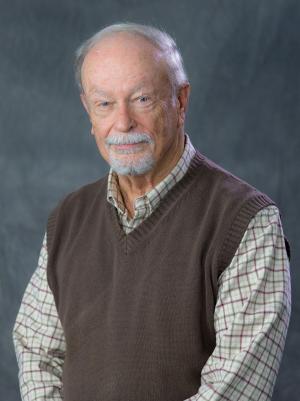
Robert Mitchell thought he would be at University Park only long enough to earn his doctorate— but then Penn State captured his heart, hired him as a biology professor, and kept him teaching and doing research for 40 years. Known affectionately as “Mitch,” he directed Penn State’s Premedicine program for 27 of those years and helped thousands of Penn State students in their quest for admission to medical school.
Now a professor emeritus of biology, Mitchell recently shared some of his memories and wisdom about how Penn State prepares students to achieve the doctor of medicine degree and successful medical careers. Here are some highlights.
Patient care and medical research: “My dad was a cardiologist, so I used to think while growing up that all doctors have careers in patient care, like the three alumni doctors featured in this issue. But the M.D. degree also is an important credential for medical researchers because it opens up opportunities for clinical research that would not be accessible to a scientist lacking the M.D. degree.”
The value of academic advising: “Penn State has so much to offer students seeking careers in medical practice or medical research. Students heading toward medical school are coached in our Health Professions Advising Center, now directed by Ronald Markle, in ways to enhance their qualifications and increase their chances of getting accepted. One way our advising office helps is by giving each of these students a rehearsal interview prior to writing our committee letter of evaluation. Hopefully, this helps to prepare them for the real interviews at medical schools, which typically reject about half of their applicants after the interviews. Penn State’s rehearsal interviewers are scientists, advisors, and local physicians, so the students get a variety of perspectives and suggestions for improvement.”
Faculty-guided research: “Another important learning experience is an independent research project guided by a Penn State science professor. Because Penn State is such a highly ranked research university with a strong culture of involving undergraduates in laboratory research, our students have a wealth of these opportunities here that just are not available at many other colleges and universities.”
Strength of culture: “Medical schools certainly are looking for students who have a strong academic record. But they also are looking for people who are good communicators, listeners, observers, and leaders. Some admission deans of medical schools have told me that Penn State students have a reputation for being more well-rounded, more balanced, more skilled, and more likeable than many of their other applicants. Maybe the culture here enriches our students’ preparation for a career in medicine—the rich diversity of Penn State’s population, plus the volunteer and leadership opportunities in Penn State’s many clubs and organizations. I think Penn State’s academic, research, and cultural strengths are among the reasons why our students and alumni resonate so enthusiastically when they hear someone yell ‘WE ARE!’ Students really grow as individuals as they grow in knowledge and experience during their undergraduate years here.”
